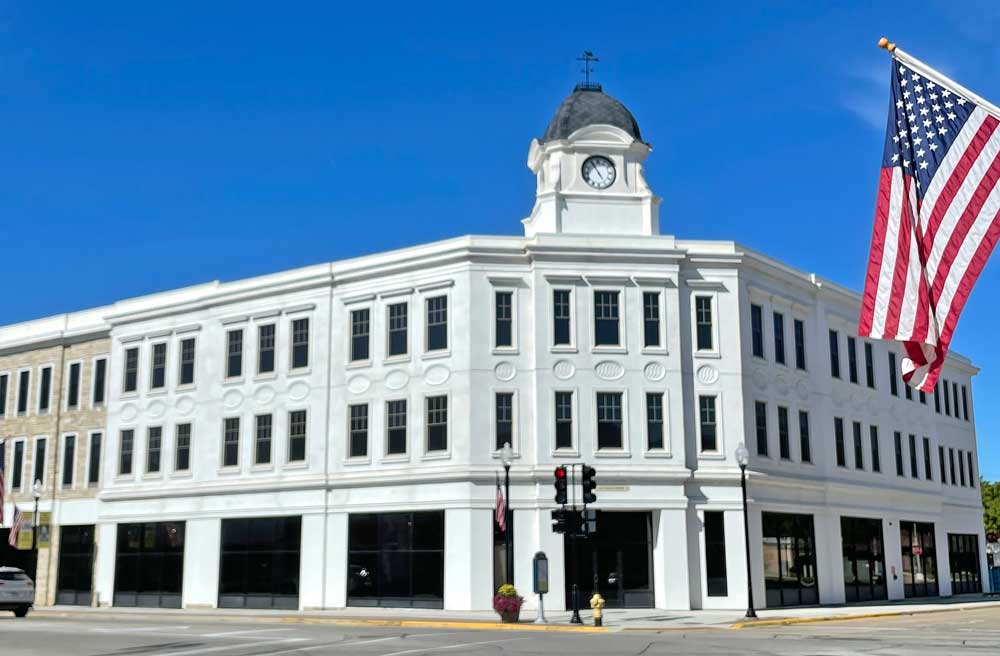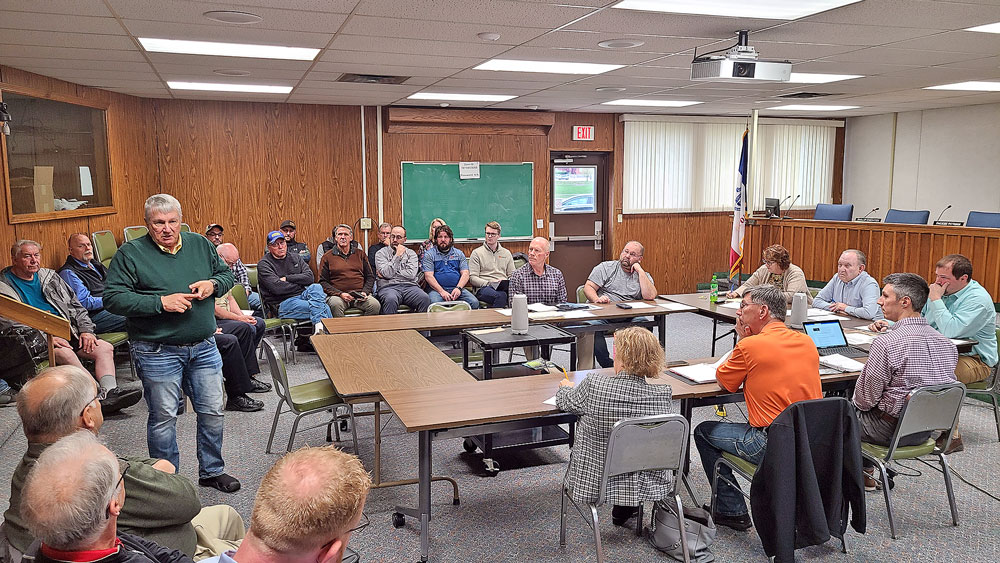Bank, Union House owner file counterclaim against project architect

By Bob Steenson, bsteenson@charlescitypress.com
The current owner of the Union House on Charles City’s Main Street has filed a counterclaim against the architect that designed the building, accusing the architect of professional malpractice, breach of contract and negligence, and asking for a jury trial.
Four Keys LLC, the company that was formed to purchase the former McQuillen Place assets in federal bankruptcy court, and First Security Bank & Trust, which holds the construction mortgage for the project, are being sued by the architect, Cornice & Rose International LLC, of Illinois, for allegedly violating the architect’s copyright on the design of the building.
On Friday, Four Keys and First Security filed a counterclaim, alleging that Cornice & Rose failed to provide a design that met professional requirements and that cost Four Keys more than $3.4 million to repair and complete the Union House project.
The counterclaim, filed in the U.S. District Court for the Northern District of Iowa, includes a long list of alleged “defective, incomplete and architectural problems with the building.” That list includes:
- No ventilation or vapor barrier in the attic, causing rot and requiring $370,000 to $400,000 to repair.
- Defective installation of the clock tower.
- Kitchen cabinets that are too tall and blocked access to windows.
- Some toilets placed within one inch of windows.
- Improper exterior finishing.
- Unsuitable material used for flooring.
- No moisture resistant ceiling tile in bathrooms.
- Stairway handrails inadequate for the facility.
- No separate controls for each residential unit for the heating and cooling system.
- Elevator did not meet code and a new elevator had to be installed.
- Plumbing design or installation “too low.”
- Countertops cut wrong.
- Numerous problems with the electrical design.
- Walls out of plumb.
- Unacceptable drywall workmanship.
The counterclaim suit says First Security and Four Keys suffered damage “as a result of the negligent provision of architectural services by C&R because the building was not suitable for occupancy and use without a substantial investment in the repair and completion of the project.”
It continues, “The value of the building declined as a result of design and construction defects, and the property could not be used for its intended purpose or marketed for sale so as to recover the financing FSBT had provided, except by incurring substantial additional costs to complete, repair and modify the building, bring it within required standards, and make it ready for occupancy.”
The problems caused Four Keys to incur costs of $3.427 million, which amount was financed by First Security, the counterclaim says.
“C&R breached its standard of care in the performance of its duties on the project and as a result Four Keys and FSBT suffered damages, as described herein,” the counterclaim says.
The action asks the court to order Cornice & Rose to pay Four Keys and the bank “for damages, losses, payments by Four Keys and FSBT to third parties in an amount to be determined by a jury, award Four Keys and FSBT their attorney’s fees, tax costs to C&R and accord Four Keys and FSBT such other relief as is just and reasonable.”
The counterclaim also argues that when Four Keys purchased the assets of the McQuillen Place Co., Four Keys also acquired the rights to the contract for architectural services between McQuillen Place Co. and Cornice & Rose.
Cornice & Rose breached its contract with McQuillen Place Co., “resulting in the defects, damages, repairs and other problems,” the counterclaim says.
In the copyright lawsuit, Cornice & Rose had accused Four Keys and First Security — as well as several other businesses that worked on the building after Four Keys purchased it — of “piracy” of intellectual property, saying Cornice & Rose was never paid in full for its work, and that Four Keys and other companies are acting illegally by continuing to work on the building because neither Four Keys nor First Security ever acquired a license for the design from Cornice & Rose.
Work on what was then known as the McQuillen Place — a three story mixed residential and retail/commercial property project — began in 2014 with Cornice & Rose designing the project and in some aspects supervising the construction.
Work on the project stalled in 2017 and Cedar Rapids Bank & Trust, the bank holding the original construction mortgage, filed for foreclosure in 2018. Later that year First Security took over the mortgage and all interest in the foreclosure action, including the original unpaid principal, interest and penalties that at that point were greater than $4 million.
McQuillen Place Co. LLC filed for bankruptcy in 2019 in U.S. Bankruptcy Court for the Northern District of Iowa, and in April 2020 the bankruptcy court judge approved selling the assets of McQuillen Place Co. to First Security.
The bank holding company that owns First Security then formed Four Keys to purchase the assets.
The next scheduled step in the federal copyright lawsuit is a deadline for initial fact discovery by the parties of Jan. 1, 2022. No trial dates on the copyright lawsuit or the counterclaim have been set.
Trial on the initial foreclosure action is currently set for March 4, 2022, before Judge Chris Foy in Floyd County District Court.








Social Share